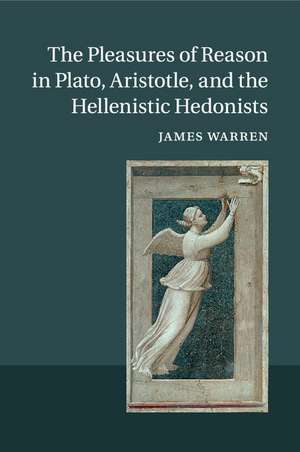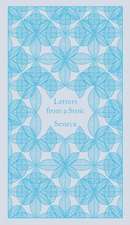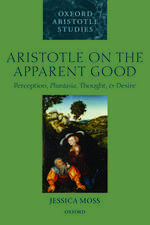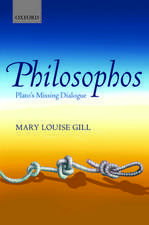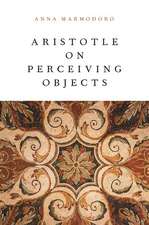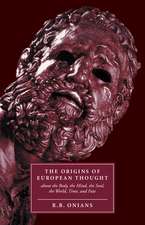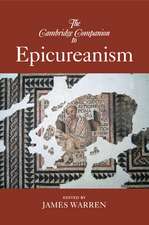The Pleasures of Reason in Plato, Aristotle, and the Hellenistic Hedonists
Autor James Warrenen Limba Engleză Paperback – 18 oct 2017
| Toate formatele și edițiile | Preț | Express |
|---|---|---|
| Paperback (1) | 282.87 lei 6-8 săpt. | |
| Cambridge University Press – 18 oct 2017 | 282.87 lei 6-8 săpt. | |
| Hardback (1) | 436.54 lei 6-8 săpt. | |
| Cambridge University Press – 26 noi 2014 | 436.54 lei 6-8 săpt. |
Preț: 282.87 lei
Nou
Puncte Express: 424
Preț estimativ în valută:
54.13€ • 56.72$ • 44.75£
54.13€ • 56.72$ • 44.75£
Carte tipărită la comandă
Livrare economică 12-26 aprilie
Preluare comenzi: 021 569.72.76
Specificații
ISBN-13: 9781107631595
ISBN-10: 1107631599
Pagini: 246
Ilustrații: 1 b/w illus.
Dimensiuni: 152 x 228 x 14 mm
Greutate: 0.34 kg
Editura: Cambridge University Press
Colecția Cambridge University Press
Locul publicării:New York, United States
ISBN-10: 1107631599
Pagini: 246
Ilustrații: 1 b/w illus.
Dimensiuni: 152 x 228 x 14 mm
Greutate: 0.34 kg
Editura: Cambridge University Press
Colecția Cambridge University Press
Locul publicării:New York, United States
Cuprins
1. Introduction: the pleasures of reason; 2. Plato on the pleasures and pains of knowing; 3. Aristotle on the pleasures of learning and knowing; 4. Epicurus and Plutarch on pleasure and human nature; 5. Measuring future pleasures in Plato's Protagoras and Philebus; 6. Anticipation, character, and piety in Plato's Philebus; 7. Aristotle on the pleasures and pains of memory; 8. Epicureans and Cyrenaics on anticipating and recollecting pleasures; 9. Epilogue.
Recenzii
'Warren perfects the virtues exemplified in J. C. B. Gosling and C. C. W. Taylor, The Greeks on Pleasure, thanks to his historical accuracy, his subtle analysis of metaphors and analogies (consider, paradigmatically, the weighing and measuring of pleasures and pains in his chapter 5) and of other literary elements in the works he reads. He treads carefully whenever needed, and nurtures the sensitivity for aesthetic enjoyments, although they go beyond the scope of this inquiry. Consequently, I highly recommend this book to all specialists in ancient philosophy as well as budding ancient philosophy students. Both groups will benefit from experiencing anew, or for the first time, the understanding that trailblazing contributions do not emerge primarily from proposing a new exegesis of this or that line of text.' Georgia Mouroutsou, Bryn Mawr Classical Review
Notă biografică
Descriere
How did ancient philosophers understand the relationship between human capacities for thinking and our experiences of pleasure and pain?
